A Woman’s Heart: Understanding Heart Attack Symptoms in Women
As part of our preventive care, the physicians at Athens ObGyn check on a woman’s heart during a well-woman exam. We believe it is important for you to understand heart attack symptoms in women, as women’s symptoms are not always the same as men’s. Knowing the facts could save your life.
Coronary heart disease is the leading cause of death in women
You may worry about cancer, but maybe not so much about heart attacks or heart disease. You may not realize that approximately one in 10 women older than 18 have heart disease. We encourage you to discuss your risk of getting heart disease with your Athens ObGyn physician during your next wellness visit.
Heart attack symptoms in women
Chest pain, pressure or tightness are still the primary symptoms of a heart attack for about 70% of women. These feelings may not be as dramatic as the heart attacks you see in movies or on tv, and the pain may come and go.
For the other 30% of women, the symptoms may not be as obvious. There are several symptoms of which you should be aware.
- Pain that radiates in the neck, jaw, shoulder or upper or middle back
- Pain in either or both arms
- Shortness of breath that occurs unexpectedly or when you are not exercising
- Excessive sweating
- Dizziness or feeling lightheaded
- Unusual or extreme fatigue
- Heartburn or abdominal discomfort
In a woman’s heart, blockages tend to occur not only in the larger arteries, but also in the smaller arteries. This condition is known as small vessel heart disease. Women also are more likely than men to have nonobstructive coronary artery disease, making them more at risk of a heart attack when there are no blockages present in the arteries.
Risk factors that affect a woman’s heart
You can prevent heart attacks by understanding your risk factors and working to get to and maintain your best health. Several factors put women at higher risk of developing heart disease than the same conditions do in men.
- Diabetes
- Stress
- Depression
- Smoking
Having a family history of early heart disease, or having inflammatory diseases such as lupus or rheumatoid arthritis, increase women’s risk more than they do in men. Pregnancy complications, such as gestational diabetes or high blood pressure, also increase women’s risk. Too much inactivity is a risk factor for both men and women.
The physicians at Athens ObGyn advise you to take charge of your health by scheduling annual wellness visits and discussing your risk factors and symptoms with our team. A woman’s heart is too important to ignore. Contact us for an appointment.
